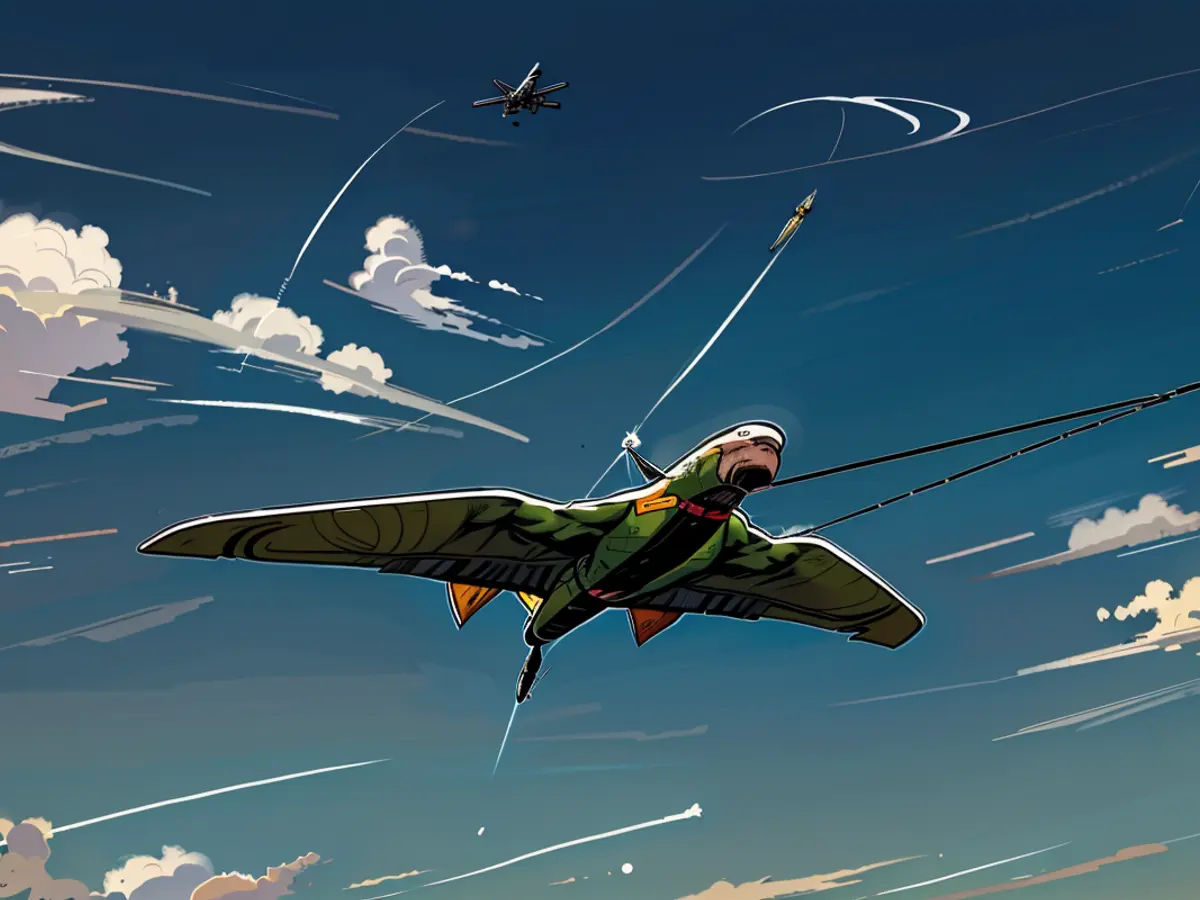KI should coordinate entire drone swarms against Russia
Drones are becoming increasingly important for Ukraine in the defense fight against Russia. In order to be as effective as possible, technology companies there are heavily relying on Artificial Intelligence (AI). AI has a decisive advantage in this.
In the fight against Russian invaders, Ukraine also relies on AI. With the help of this technology, relatively cheap combat and reconnaissance drones are supposed to operate in swarms and become immune to enemy counter-signals. Since the start of the war in early 2022, more than 200 technology companies have emerged from the ground that deal with this topic.
One of these startups is Swarmer. It develops software that, according to the company, brings together multiple drones into a largely autonomous swarm. A person only gives the attack signal, as manual control of more than five drones or robots at the same time is nearly impossible, explains Swarmer CEO Serhij Kuprijenko. An AI can, however, control hundreds of these machines. Swarmer's developed system directs a group of reconnaissance and combat drones to land and in the air. Each drone plans its actions independently and can anticipate the behavior of other swarm members.
However, the software has only been tested in combat use to a limited extent so far. According to a Ukrainian government insider, in previous swarm operations, about 20 drones were released at a time. Some were supposed to directly target the enemy, while others were used to distract or disable enemy defenses. A person maintained control, while the AI supported him in target selection or flight routes.
Greater Independence of Drones
However, these drones are currently mostly directed by pilots via remote control. To disrupt this connection, Russian forces use jammers. This causes the machines to crash or miss their target. The hit rate of remotely controlled drones has been declining continuously, with only about 30 to 50 percent reaching their target now, says Max Makartschuk, head of the AI department at Brave1, a Ukrainian government investor in defense technologies. "We are working on a concept where there will be no more connection between pilot and drone." This could increase accuracy to 80 percent.
Swarmer and other companies are working on image recognition by AI for this purpose. In the event of disrupted connections to the pilot, the drones should find their way to the target using their cameras independently. The necessary software runs on small computers like the Raspberry Pi, which is popular among IT enthusiasts and hobbyists. A simple AI target acquisition system should therefore be affordable for approximately $150 per drone, predicts Makartschuk.
Russia has been working on similar technologies for several years, notes military expert Samuel Bendett from the think tank Center for a New American Security. He, however, emphasizes ethical and legal questions in connection with AI in warfare. People must always maintain control over such systems to prevent errors in target selection. The European Parliament had already warned in 2020 about the possible violation of human rights by AI weapons.
In addition to relying on AI for drone operations, Ukraine is also confronting ethical and legal concerns about the use of AI in warfare, particularly in target selection. Russia, too, has been developing similar technologies for several years, highlighting the role of AI in modern warfare and conflicts globally. Despite these advancements, the hit rate of remotely controlled drones in the ongoing conflict in Ukraine has significantly dwindled due to Russian jamming, leading to the exploration of easier and more autonomous alternatives.








